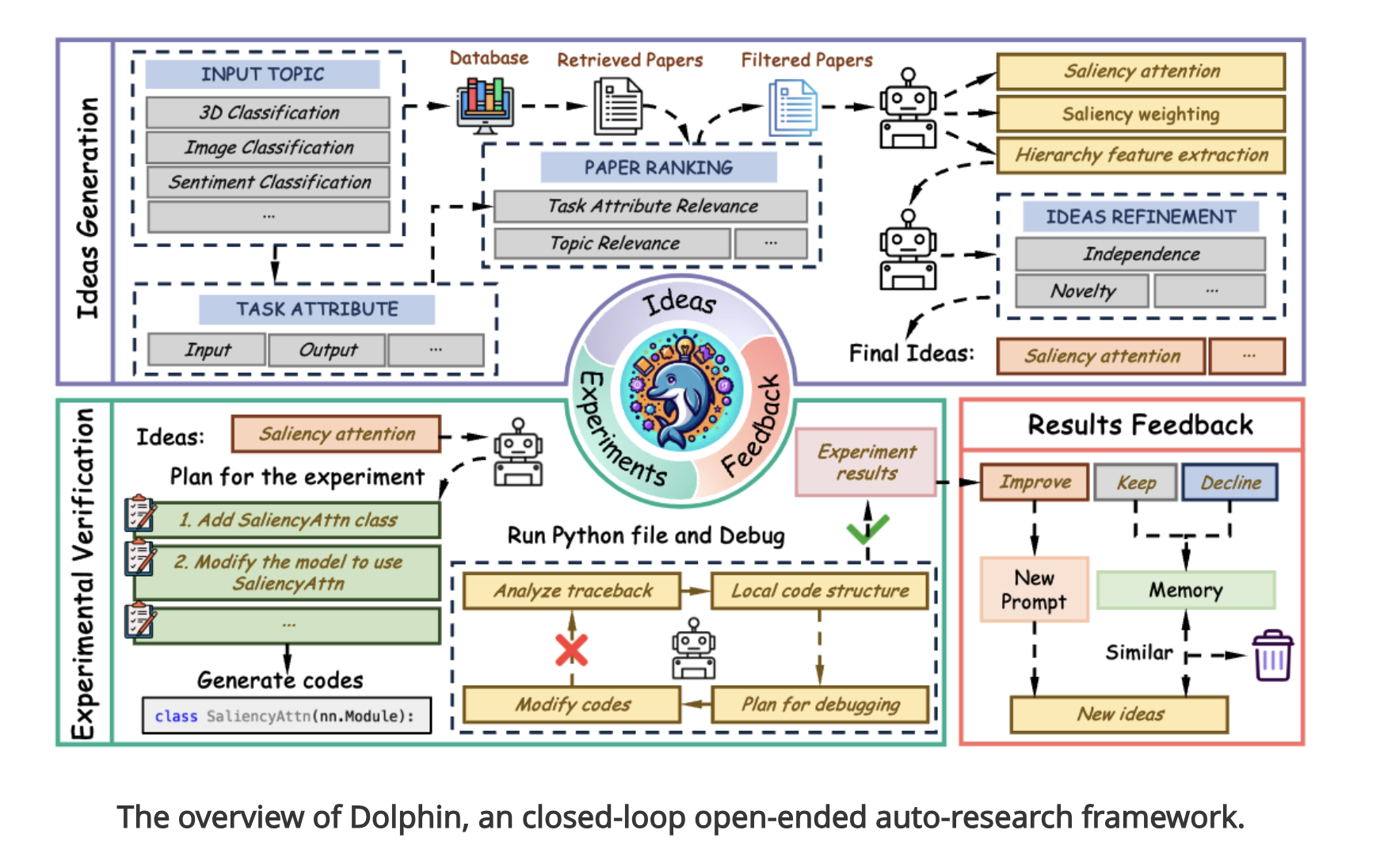
Revolutionizing Scientific Research with AI
Artificial Intelligence (AI) is transforming the way discoveries are made in science. It speeds up data analysis, computation, and idea generation, creating a new scientific approach. Researchers aim to develop systems that can complete the entire research cycle independently, boosting productivity and tackling complex challenges.
The Challenge of Traditional Research
Scientific research often involves human inefficiencies, making hypothesis generation and data validation slow. This can hinder innovation and delay accurate findings. Improving this process is crucial for faster and more precise scientific outcomes.
Emerging AI Solutions
Tools like GPT-researcher and AI-Scientist help automate parts of the research process by breaking tasks into smaller steps and generating ideas. However, a fully integrated system that includes feedback in the research cycle is still lacking. Many current tools depend on small datasets or fixed workflows, limiting their effectiveness for open-ended research.
Introducing DOLPHIN
Developed by Fudan University and the Shanghai Artificial Intelligence Laboratory, DOLPHIN is a groundbreaking auto-research framework that covers the entire scientific research process. It generates ideas, conducts experiments, and uses feedback to improve future iterations, leading to higher efficiency and accuracy.
How DOLPHIN Works
DOLPHIN operates in three key stages:
- Research Retrieval: It finds and ranks relevant research papers to filter the best references.
- Idea Generation: Using the selected papers, DOLPHIN creates unique research ideas and refines them to eliminate redundancy.
- Experimental Verification: It automatically generates and debugs code, analyzing errors to enhance the experimental process.
Proven Results
DOLPHIN has been tested on various tasks:
- In image classification, it improved accuracy by up to 0.8% over existing models.
- For 3D point classification, it achieved a 2.9% improvement over traditional methods.
- In sentiment classification, it closed the gap between different model performances by improving accuracy by 1.5%.
Efficiency Through Iteration
DOLPHIN enhances efficiency with each research cycle. In its first iteration, it generated 20 ideas, with 19 deemed novel. By the third iteration, its debugging success rate improved from 33.3% to 50.0%, showcasing its ability to learn and optimize over time.
The Future of AI in Research
DOLPHIN marks a significant advancement in AI-driven research by addressing traditional workflow inefficiencies. Its integrated approach to literature review, idea generation, experimentation, and feedback has the potential to advance scientific discovery significantly.
Get Involved
Explore the Paper and Project Page for more information. Follow us on Twitter, join our Telegram Channel, and connect with our LinkedIn Group. Don’t miss out on our thriving 65k+ ML SubReddit.
Join Our Webinar
Gain actionable insights into enhancing LLM model performance while ensuring data privacy.
Transform Your Business with AI
Stay competitive by leveraging AI in your operations:
- Identify Automation Opportunities: Find areas in customer interactions that can benefit from AI.
- Define KPIs: Ensure measurable impacts from your AI initiatives.
- Select an AI Solution: Choose tools that fit your needs and allow customization.
- Implement Gradually: Start with a pilot project, gather data, and expand thoughtfully.
For AI KPI management advice, contact us at hello@itinai.com. Stay updated on AI insights through our Telegram and Twitter.
Discover how AI can transform your sales processes and customer engagement at itinai.com.




























